Resiliency and the Ripple Effect
We are very happy to share an editorial that Stephen wrote for the Spring 2014 issue of Small Farmer’s Journal. SFJ, as it’s known, has had a large influence on us for a very long time. It is one of those jewels of a publication, wrapped up in its plain brown paper cover, but holding viewpoints and articles that expand one’s mind, or perfectly sum up thoughts on a subject, or inspire or educate on something that you hadn’t really thought about before.
We’ve contributed articles before, but were very honored when Lynn Miller asked for an editorial. He didn’t specify the subject, so we went with what was most in front of us at the time, drawn from a number of conversations with customers from all across the country, along with material from a couple of recent presentations. We hope you enjoy it!
Our perspective is somewhat unique, based as it is on contact with home gardeners and small scale growers across the US and Canada, along with a number of other countries. Our phone and email conversations are filled with happenings from all over, from cities with community gardens, church and school gardens, to chefs working with growers to bring fresh, sustainable and locally sourced food to the forefront of their cooking, to prison systems that are going back to raising some of their own food for the lower costs, higher quality food and better rehabilitation that a working garden provides.
Canning classes are oversubscribed, seed starting and planting lectures are full and ordinary people are beginning to ask about how to grow food without using so many chemicals, pesticides and herbicides because of their concern about what they are eating. It is no longer unusual to get an email asking if we are connected in any way to the bio-tech companies, if we use herbicides in growing our seeds or if our seeds come from China.
We are seeing many small, quiet but positive indications that give us hope and encouragement in what we, and those like us, are doing. While multinational industrial food companies continue to march in lockstep with the commercial biochemical industry to control the federal regulatory agencies tasked with keeping them in check, many individuals are rejecting the rhetoric, shrill hype and slick marketing to regain their own choices. As Wendell Berry wrote –
“We are going to have to gather up the fragments of knowledge and responsibilities that have been turned over to governments, corporations, and specialists, and put those fragments back together again in our own minds and in our families and household and neighborhoods.”
This is exactly what we are seeing, in many small ways, in every corner of our cities, towns and countryside across our nation. It encourages us and motivates us. These ripples have a cumulative effect, much like the 100th Monkey Principle, where a small group of primates were taught to peel their bananas from the bottom instead of the stem end. They were isolated and out of sight from the mainland, with no identifiable method of communication. Once a critical number of monkeys on the island were consistently peeling their bananas from the bottom, researchers noted that monkeys on the mainland started to do the same. Thus the term – 100th Monkey Principle – where populations change how they do things seemingly spontaneously.
We have no way of knowing where these ripples will end up, who they will affect or how. We do know that they create positive results that continue long after the initial effort or influence.
An excellent example is the Humboldt Elementary school garden in the small Arizona town of the same name. Started by a now-retired teacher almost 20 years ago that was abandoned for a number of years, then re-started last year by a new teacher, it has positively affected kids, parents and teachers already. The local paper has featured it, kids are actively engaged and eagerly look forward to their time in the garden each day, and the growing space is being expanded to grow more.
Whether the influence is simply an appreciation and preference for fresh, local food or extends to the choice to become a grower, rancher or farmer that is biologically friendly, we’ll never know and don’t really need to. Sometimes knowing that we’ve made our corner of the world a little better through our actions is enough. That knowing helps us keep moving on, continuing the work and sharing our knowledge, experience and passion with those who will listen and join with us. As the kid who was told that he couldn’t save all of the starfish washed up on the beach, he replied as he threw another one back, “It made a difference for that one!”
I heard or read the old phrase, “If you want to change the world, plant a garden” when I was much younger. It didn’t make any sense to me at the time, as I strongly disliked being forced to work in our large garden when I had much better things to do with my free time!
After I grew up, left the Navy and the big cities and made the conscious choice to move back to a small town, those words began to make more sense. The world-changing part wasn’t the garden or the food that it grew, not even the world that it was supposed to change. Obviously, one small garden can’t change or feed the world by itself.
What one small garden can do is share.
It can share its food, the knowledge of how that food was grown, why it tastes as wonderful, rich and delicious as it does and the excitement and contentment that only comes from food you’ve grown. The term “local food” becomes something entirely different and ceases to be a carelessly used sound-bite. That one small garden can become a few, then several, then many across a town, a city, a county and a nation. That small garden becomes a metaphor, an idea and a movement.
It can become the embodiment of how we as individuals can reclaim our decisions from the proxies of government, corporations and stockholders and make it a personal choice to grow our own food and share it with our family, friends and neighbors, improving everyone’s lives that we share. After all, we are only talking about the third most important ingredient in life, after air and water! Food, as with soil, has been denigrated and degraded into a commodity that is not worth our attention, respect and devotion. We are slowly waking up to this fallacy.
Something as simple as showing someone the distances between home-grown and store-bought food through the flavor and nutrition can open their eyes to a new world of food.
Sharing our abundance from the field or garden with a friend or neighbor is a powerful way to start a ripple. For us it costs next to nothing as it is surplus, but is worth a lot to the receiver. They want to reciprocate the sharing as a way to say thanks. This creates a very powerful, positive ripple effect that used to be common in rural and agricultural communities and is becoming more widespread once again.
This occasional sharing becomes something much greater when the surplus is planned, such as an extra row that is planted exclusively to give away or share with others. This creates a very positive upward spiral in the community, as well as strengthening it and making it more resilient and self-supporting.
Others follow the example, as they want to contribute and participate in the abundance. Soon the immediate neighborhood begins to look a lot like Switzerland, where neighbors plan their backyard gardens together to maximize the amount of food grown in their area, and then share the crop together. What is surplus then goes out to the larger neighborhood or community; a perfect demonstration of how to get away from the insidious influence of the industrial petro-chemical agri-business that seems bent on controlling our food supply today. The most deadly effective way to loosen their grasp is by making them completely un-necessary in our lives.
Looking at the marketing machines of mass media backed by billion dollar multi-national corporations and aided by the federal government, many everyday people question the continued existence of individual choice and responsibility today and whether it has any application in our lives. It is a valid question, but the answer won’t come from looking at the usual answers.
Look instead at some of the results that have happened from individual’s choices and actions. How rBGH was pushed out of milk in grocery stores due to mothers continually asking for milk without that synthetic hormone, and asserting that they wouldn’t buy any milk that had it. Enough dairy managers heard the questions, passed it up the line and the management board saw that enough market share and dollars were being lost that they made the business decision to remove it. It is estimated that 7 – 10% of the population of moms made this happen, not a majority in a voting situation, but a large impact on the company’s profits that made the choice clear.
Look also at how hard the processed food industry, helped by the bio-tech industry has fought to defeat GMO labeling initiatives in California and Washington states. The commercial, industrial Ag industry has called these “defeats”, but was forced to spend tens of millions to achieve those victories. Their behind the scenes efforts have been exposed to the public, their “Natural” label subsidiaries that helped fund the anti-labeling efforts have been hit hard and repeatedly, feeling the effects of public outrage as more individuals learn of the corporate shell game being played at the expense of their health and money.
From our perspective, we see much to be proud of, yet much to be very concerned with.
The local, sustainable food movement has seen great growth and increase in popularity and acceptance that has been beneficial to small farmers, growers and communities; at the same time there is more rhetoric being lobbed at the “opposition” from both sides than ever before.
Civil discussion is becoming increasingly more difficult with catch-phrases and sound-bites being deployed instead of rational, thoughtful and open discourse where everyone doesn’t have to agree, but can still get along. Shrilly shouting down the other party with emotional, highly charged word bombs or character assassination is the order of the day. It seems that more folk are content with term-slinging that makes them feel good or righteous, instead of actually understanding what those terms mean or describe.
We see more need for resiliency today than ever before, but for entirely different reasons. Resiliency once was used somewhat interchangeably with self-sufficiency, and it still applies in that respect.
I once heard a great example of resiliency – that of a cabin boy taking a cup of coffee to the captain on the bridge. As the ship is pulling out of port in calm waters, it is an easy task – cup of coffee on the tray, don’t run into anyone, be careful going through the doors and all is well.
Everything changes when he has to do the same thing in 8 – 10 foot seas with a storm moving in with the ship anything but still and calm. Every move, every step must be planned, visualized and then executed with confidence. Elbows, knees and shoulders are used to brace against bulkheads, crossing from one side of the passageway and from one wall to the other as the ship rolls is now normal. Waiting until the top or bottom of a swell before going through a door and bracing himself all the while is what is needed.
The same task or plan under different circumstances makes doing that task completely different.
As Allan Savory taught in holistic management – the very last question of any planning is to ask, “What if we are wrong, what are the early signs that things aren’t working?” Don’t assume that everything will go as planned, and that we have all the answers at the beginning. Don’t assume we are always right.
Our country does not have the resiliency that is needed in so many areas today. Look at recent weather events, with people stranded on the freeways in Atlanta, unable to get home, staying at big box hardware stores overnight, running out of fuel on the freeways. Our stubborn insistence on depending on someone else to provide for us will eventually get us into real trouble.
Another example we should have learned from long ago, but were re-taught during the economic meltdown and ensuing political madness of “The Great Recession” that crashed around us in 2008 was the fallacy of infinite growth, as if the financial markets were not a closed system and existed outside of the realities of the world.
I’ve often said that we will wind up in a sustainable economy with a sustainable agriculture – either by force or by choice. We will either make the choices and changes needed to be able to grow enough of our own food to feed ourselves, or we will suffer until we do learn how to when times get tough. We might be seeing the arrival of those times with food starting this summer, with California in a state of emergency due to severe drought and an estimated 50% of US-grown combination of fruits, nuts and vegetables from there. California grows 70% of the national production of fresh vegetables, according to the CA Dept. of Food and Agriculture for 2012.
For a real-world example of resiliency in action, look at Russian Dacha gardening. This is backyard gardening on a national scale that prevented a famine after the USSR collapsed, taking with it commercial, industrial, subsidized agriculture. They produce 47% of their national food supply on 3% of the land, from home gardens and they’ve done this for hundreds of years with hand tools and human labor. According to official government statistics in 2000, over 35 million families (approximately 105 million people or 71% of the population) were engaged in dacha gardening. These gardens provide 92% of Russia’s potatoes, 77% of its vegetables, 87% of the berries and fruit, 59% of its meat and 49% of the milk produced nationally, in a nation that has an average of just less than 100 days of growing season a year. So tell me again, please, exactly how small scale agriculture doesn’t work?
Would we in the US fare as well if the cost of diesel fuel doubled or water scarcity significantly increased food costs? Or would we go the way of the Cubans, where a significant portion of the population died of starvation and everyone else lost 30lbs until they figured out how to grow food in the cities; using every available scrap of soil, planters, lawns, parks, flower beds and spots from curb to sidewalks to grow enough food to feed themselves.
So, what can we do as individuals? Can we truly make a difference? These questions always, inevitably arise in these discussions. The answer is – of course we can make a difference, we already do each and every day that we share our knowledge and abundance, that we create those positive ripples, sending them out into the world to reinforce other ripples from unknown people just like us.
This isn’t just some socially responsive, feel-good response. Looking around us and seeing the unprecedented growth of Farmer’s Markets, community supported agriculture (CSAs), food hubs, community gardens, school gardens and backyard gardens shows us something that terrifies the conglomerates – people are becoming interested in their food once again, and are tired of being lied and marketed to by the industrial food corporations and their lackeys in the government.
It is a radical thought in today’s world where the health care industry pays no attention to food while the food industry pays no attention to the health of their products that improving and healing the soil in our gardens and farms and growing some of our own food will noticeably improve our own health without the costs, paperwork or side effects.
Looking at it from that perspective, it really feels good to be a radical, doesn’t it? After all, if you aren’t on some sort of government watch list these days, you really aren’t trying hard enough!

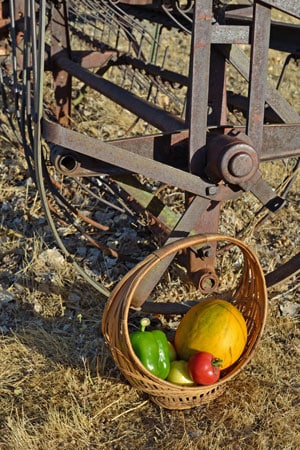
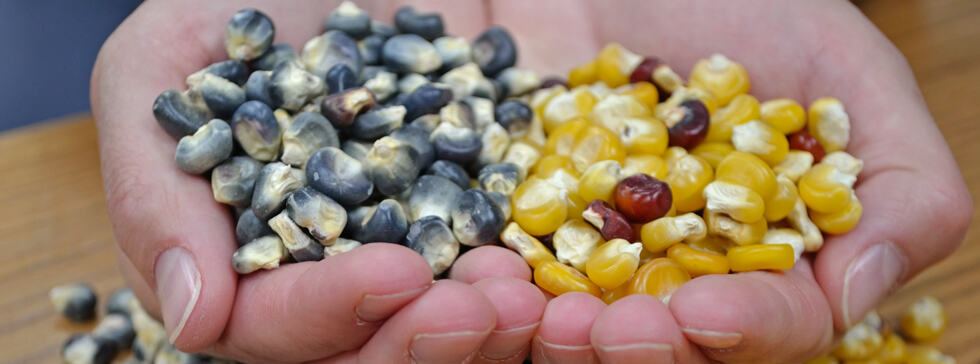
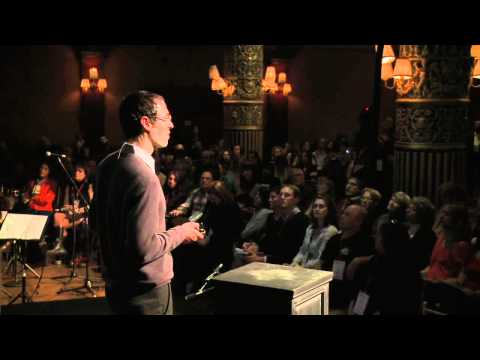
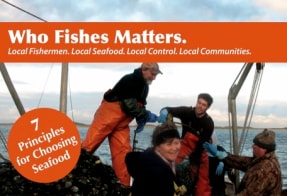
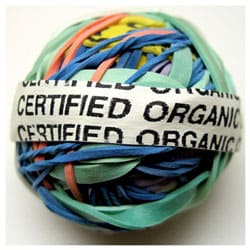


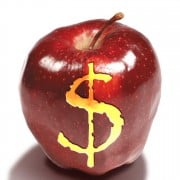
Thank you, Stephen. I think you covered a lot of important ideas in a very direct and engaging fashion. My husband and I are retired market growers, food product makers and organic farm managers. I also used to run a good-sized farmers market and served as a director of the Missourii Organic Association. Food production has been front and center for us for many years and it still is. We definitely fit into the niche you call “Russian dacha gardening”. On our small Missouri Ozarks homestead, we raise well over fifty percent of our diet and also supply many of our other needs.
Our closest neighbors (three households of the same family) are friendly and mildly interested in what we are doing, but they all struggle with issues that relate directly to the concepts embedded in the word “resiliency”. The parents are still paying on a mortgage in their 70s and the wife is working to supplement their Social Security. The two sons and their families commute to jobs in Northwest Arkansas and have to go no matter what the weather or road conditions. We had major flooding down in our valley last summer due to torrential rains and a very cold, icy winter. During the recession, one of the brothers and both of the wives weathered substantial periods of unemployment and have only recently regained their footing. Everything they eat or use is purchased. As this area has moved from a subsistence to a cash economy over the past 25 to 30 years, their situation has become the norm. If you drive the roads in our area, there are no longer any gardens in sight. When my husband bought this land in 1977 everyone had a “garden patch”.
I think there is an urgent need for a deep conversation about the concepts of sustainability and resiliency. It is sobering to realize, that like our neighbors, the majority of our citizens have only a short distance separating them from real trouble.
Raised voices and pre-formatted rhetoric are of no use in this situation. What is required is real listening and thoughtful speech.
This is an excellent article, except that the “100th monkey principle” has been thoroughly debunked. Never happened.
We appreciate you kind comments Catherine! I was a keynote speaker at the 2013 MOA conference in Springfield, MO. Sue Baird had seen one of my online presentations on soil and invited me out. It was a great time, got to meet some incredible people.
I agree completely with your comment on the need for a deep conversation on sustainability and resiliency, especially today. That is part of what we are working on, not only here in our online community, but in our real world community as well. It seems that more and more people are “waking up” which is very encouraging, but we do need more!
Thanks Beth! I’ll do some reading and research on the principle, as I had read the book during college 20 years ago but haven’t revisited it lately. Thanks for the heads up!